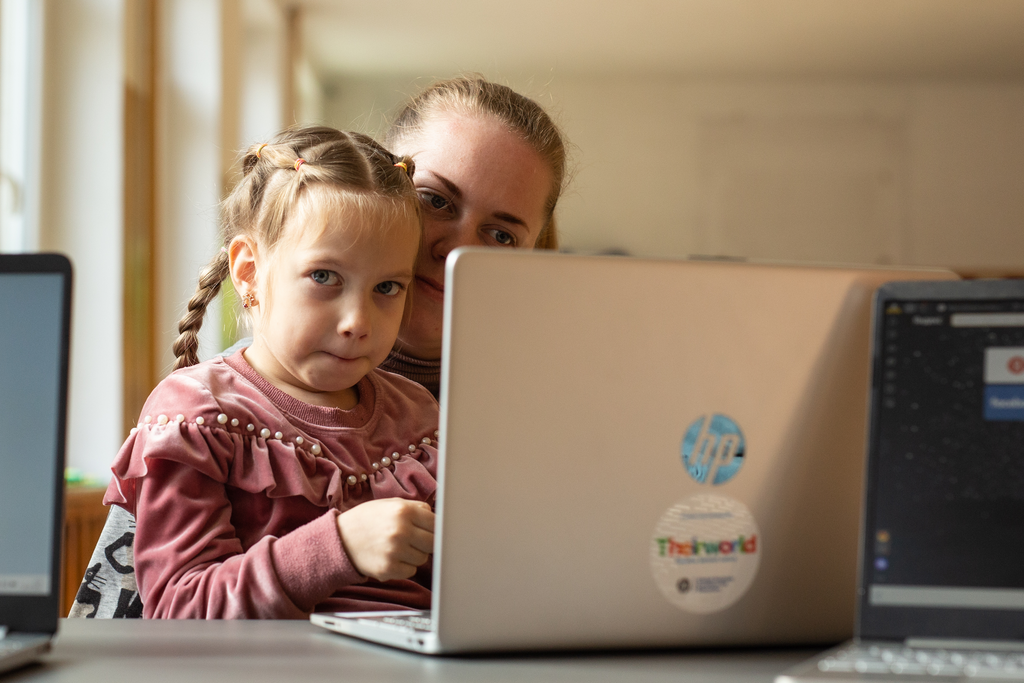One year on: Theirworld helps Ukrainian students learn and stay in touch
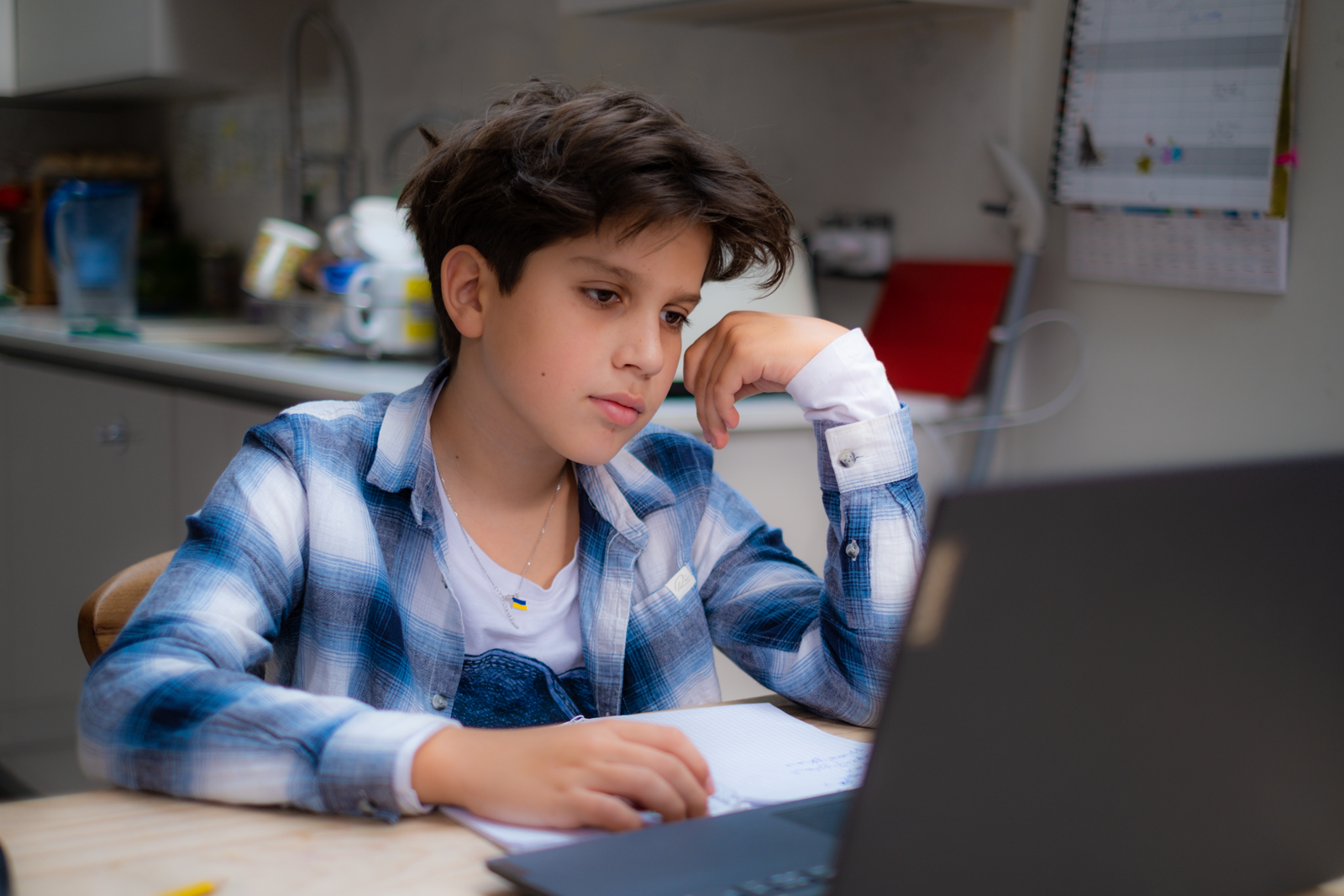
With the war about to enter its second year, our projects are delivering education to young people whose families fled abroad and others who are still in Ukraine.
When war forces families to flee to a different country, children often have to learn a new language and a new culture. They can quickly begin to forget their mother tongue and their old way of life.
But a project supported by Theirworld is helping Ukrainian children living in the United Kingdom keep in touch with their roots.
Stay With Ukraine uses online lessons to allow refugee children who escaped from the Russian invasion – which began one year ago this week – to continue their Ukrainian studies and talk to teachers and students in their homeland.
Among them is 10-year-old Maksym, now living in London. He and his mother Anastasia left Ukraine soon after the war erupted and their home city of Mariupol was bombed.
 Play/span>
Play/span>Video
Maksym goes to a school in Clapham and is becoming fluent in English. But he enjoys the extra lessons at home – learning about his country’s culture and speaking Ukrainian, which he says “is just beautiful”. He added: “We’re learning grammatic Ukrainian stuff, Ukrainian language.”
Anastasia, 34, said: “I wanted him to study English to be a part of new country and new culture. But, for me, it’s important to stay in touch with your own country. Maksym is really enjoying it.”
More than eight million Ukrainians have become refugees in other countries in the past year and more than five million children inside and outside the country have had their education disrupted, according to the United Nations.
Stay With Ukraine is one of the ways in which Theirworld and our initiative the Global Business Coalition for Education (GBC-Education) are supporting the education of Ukrainian children. The project is delivered in partnership with the Ukrainian NGO Smart Osvita and reached more than 340 students in the UK between October and December.
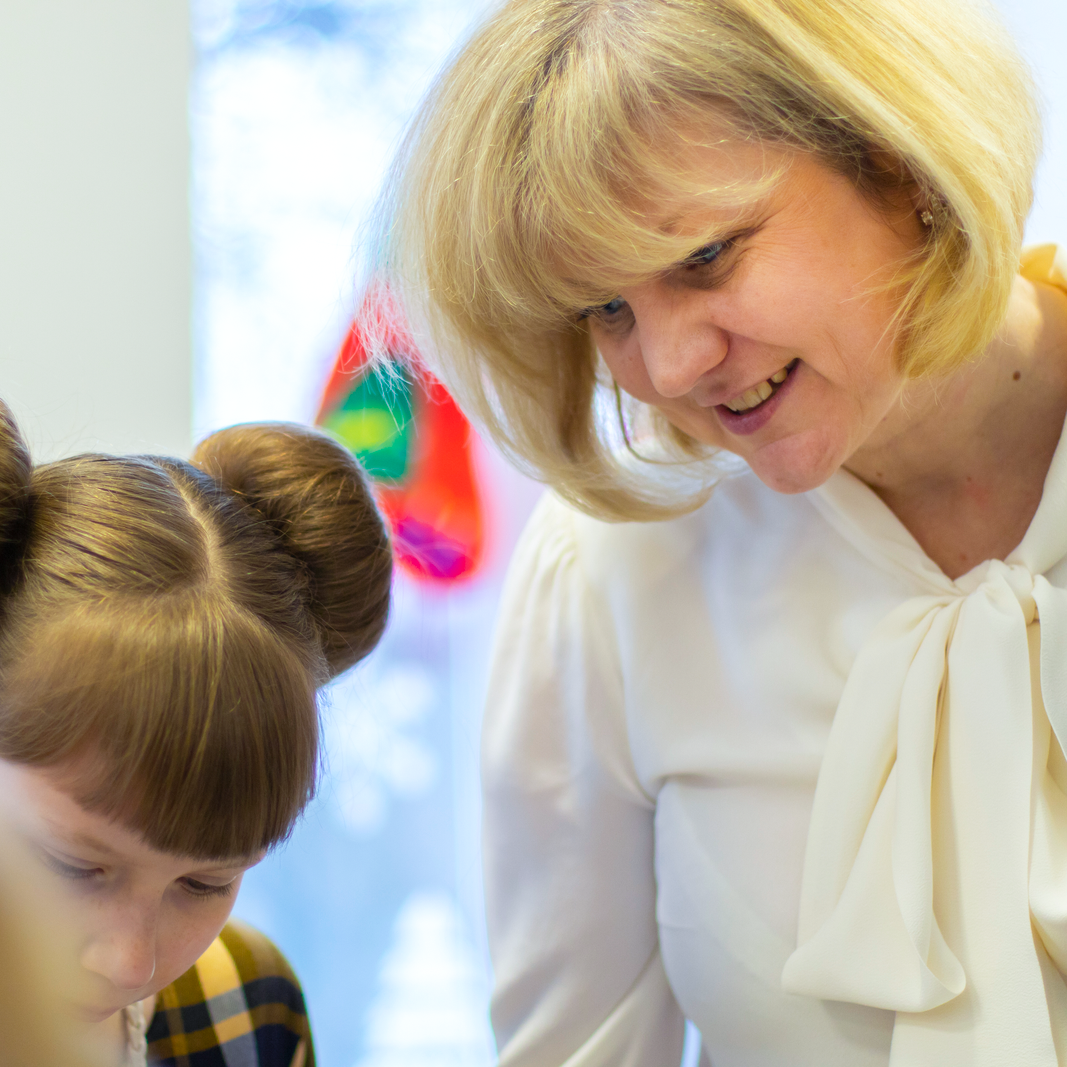
“Children are the biggest motivation for me. I understand that they need us.”
Natalya Vinnytska, teacher from Kyiv
The lessons also help children to cope with trauma and reduce the chances of them falling behind if and when they return to school in Ukraine.
One of Stay With Ukraine’s teachers is Natalya Vinnytska from Kyiv, who runs weekly online classes in Ukrainian language and literature. She said: “The invasion has had a huge impact on the kids I teach at school and these we work with online. The children feel that they have not been abandoned, they are with us.”
Sometimes the lessons are interrupted by air-raid sirens. Natalya said: “We sit in the bomb shelter for three or four hours but we still have lessons or some activity there.”
Kateryna Kostenko, Smart Osvita’s manager of educational projects, said it’s important for the children to maintain contact with other Ukrainians.
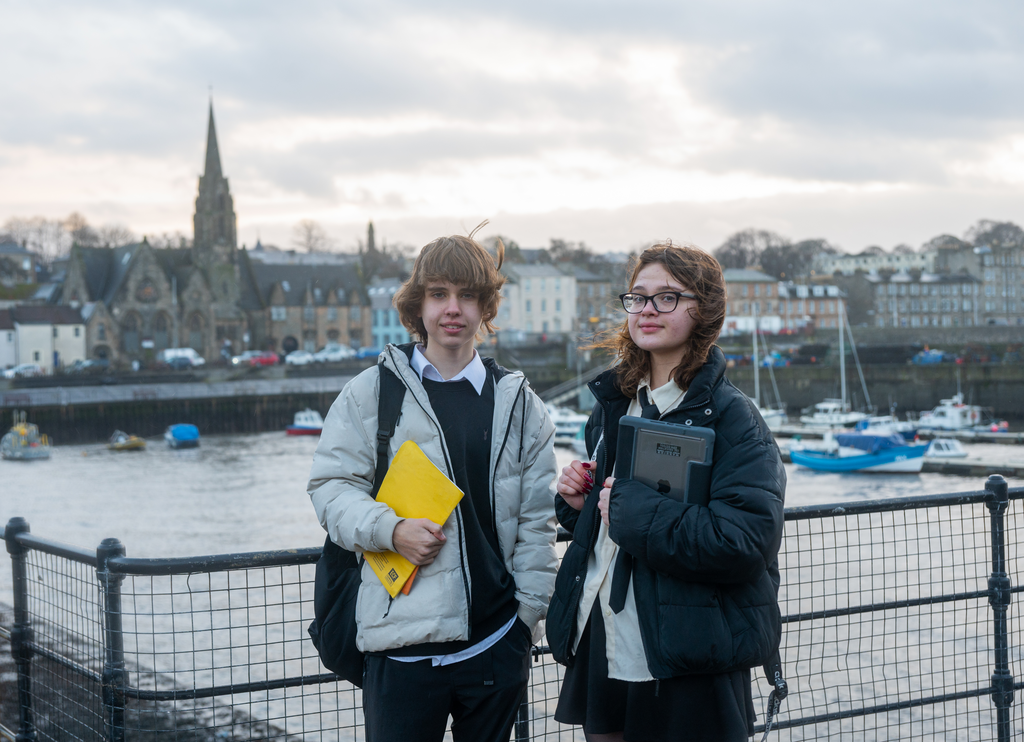
Ukrainian student Volodymr, 14, and his sister Yeva, 16, now live in Edinburgh and keep in touch with their homeland through Stay With Ukraine (Theirworld/Phil Wilkinson)
She added: “I am very moved by the fact that the children studying in our project continue to learn despite the stress they have experienced and are experiencing. After all, they have a new school, new children and new challenges.
“They continue to study despite the crazy workload. And we receive very positive feedback from parents and students.”
Theirworld’s support for Stay With Ukraine is made possible with the support of HP Inc. and the players of People’s Postcode Lottery.
GBC-Education is also helping to deliver education to Ukrainian children through Digital Equity for Ukraine – a $30 million partnership with HP Inc. and Microsoft.
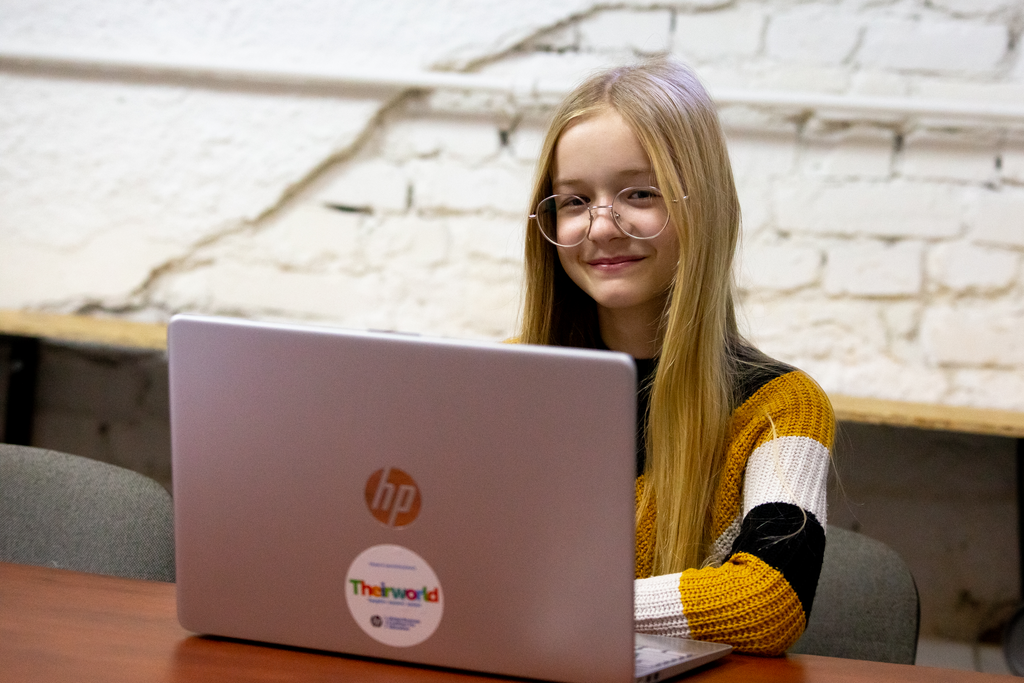
Margerita Boichuk, 11, uses one of the laptops from the Digital Equity for Ukraine initiative (Theirworld/Robert Wilk)
The partnership has delivered more than 70,000 laptops and learning devices to Ukrainian refugee and displaced children and teachers, supporting the education of more than four million learners affected by the war.
Thanks to her new laptop, 11-year-old Margerita Boichuk is communicating with friends and teachers at her old school in Ukraine from her new home in Nowa Dęba, Poland.
She and her family received their computer from Fundacja Q, a Polish charity distributing some of the Digital Equity for Ukraine laptops among refugees. Margerita said: “I can’t imagine my life without a computer. I communicate, do my homework, play cartoons for my sister.”
Alina Kureliuk, a Ukrainian teacher and mother of two, moved to Dubno, Poland, after the invasion. She teaches French in online classes and said having a new laptop has really helped.
Her own children also learn online and Alina added: “It is now easier for them to do assignments and perform various tasks.”
Justin van Fleet, President of Theirworld and Executive Director of GBC-Education, said the partnership “shows that business can deliver really meaningful programmes to children in emergencies and help restore a sense of normality to their lives”.
GBC-Education has also helped Smart Osvita to deliver Hugs – an illustrated card game helping parents to deepen bonds with their children and help them recover from trauma through physical touch.
To mark the anniversary of the war, Theirworld also commissioned a report which looks at how Ukrainian children and youth responded to the disruption to their lives and education.
It was produced by the OPORA Foundation, , a Netherlands-based organisation that provides evidence-based policy, research and operational solutions for and regarding displaced people.
The report’s authors spoke to young people, their families and teachers inside and outside Ukraine. They said they found “great resourcefulness, resilience and ingenuity, with digital and hybrid solutions high among the coping mechanisms for all concerned”.
But they added warnings about young people’s vulnerabilities and the necessity for the international community and refugee-hosting nations “to remain vigilant to their needs”.
The report was made possible by the players of Nationale Postcode Loterij (Dutch Postcode Lottery).
